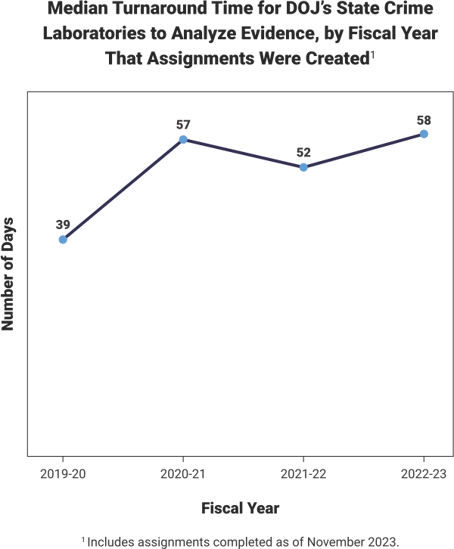A crime laboratory creates one or more assignments for each item of evidence submitted to it. From FY 2019-20 through FY 2022-23, the number of assignments decreased by 13.2 percent.
DOJ defines turnaround time as the number of calendar days from creation of an assignment to completion of an administrative review. DOJ indicated it strives to complete assignments in as timely a manner as possible, but it must analyze evidence accurately.

From FY 2019-20 through FY 2022-23, the median turnaround time to complete assignments created in a given fiscal year increased by 48.7 percent. We calculated an overall median turnaround time for all units, in part, because DOJ indicated its goal is to have an overall median turnaround time of 60 days.
2023 Wisconsin Act 58, which takes effect in July 2024, requires sexual assault kits to be processed within six months, or within 60 days if a victim reports a sexual assault to a law enforcement agency, the perpetrator’s identity is unknown, and a public safety threat exists. We recommend DOJ ensure the kits are processed within the deadlines required by Act 58.




